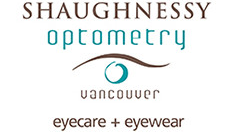
Eye allergies, also known as allergic conjunctivitis, are a common condition that affects millions of people worldwide. These allergies occur when the eyes react to allergens in the environment, leading to irritation, redness, and discomfort. Understanding the causes, symptoms, and effective relief strategies can help you manage this condition and maintain healthy eyes.
At Shaughnessy Optometry, we are dedicated to helping patients treat and manage eye diseases, and we often see patients who experience eye related issues due to allergies.
What Causes Eye Allergies
Eye allergies are triggered by allergens, which are substances that cause an immune system reaction. When an allergen comes into contact with the eyes, the immune system releases histamine, a chemical that causes inflammation, redness, and itching. This reaction leads to common symptoms like watery eyes, puffiness, and irritation. Common allergens include:
- Pollen – A major culprit during seasonal allergies, especially in spring and fall.
- Dust mites – Microscopic organisms found in household dust.
- Pet dander – Tiny skin flakes from cats, dogs, and other animals.
- Mould – Fungal spores that thrive in damp environments.
- Smoke and pollutants – Irritants like cigarette smoke and air pollution can exacerbate symptoms.
- Cosmetics and eye drops – Certain makeup products or preservatives in eye drops may trigger allergic reactions.
Symptoms of Eye Allergies
People with eye allergies may experience a range of symptoms, including:
- Red, swollen, or itchy eyes
- Watery or teary eyes
- Burning or stinging sensation
- Sensitivity to light
- A feeling of grittiness in the eyes
- Puffy eyelids, especially in the morning
These symptoms often occur alongside nasal allergies, such as sneezing and a runny nose.
3 Ways to Effectively Relieve and Avoid Eye Allergies
While allergies might be an inconvenience, there are many ways to manage them while living your life to the fullest. Here are some of the top ways that you can relieve and avoid eye allergies:
1. Over-the-Counter Remedies
You can relieve existing eye allergies by using antihistamine eye drops to stop the allergic reaction. You can also flush out allergens and keep your eyes moist with artificial tears. If you still experience irritation and swelling, placing a cold compress, like a cold towel, over your eyes can provide relief.
2. Avoiding Triggers
If you would like to avoid allergens altogether, you should keep your windows closed during high pollen seasons and use air purifiers to reduce indoor allergens. It is also advised that you wash your face and hands regularly and avoid touching your eyes if you have come into contact with an allergen.
3. Prescription Treatments
If symptoms persist, consult an optometrist for stronger medications, such as prescription antihistamines, corticosteroids, or immunotherapy (allergy shots).
Need Professional Help? Visit Shaughnessy Optometry Today!
If symptoms persist or worsen, seeking professional medical advice is essential for proper management. Don’t let allergies interfere with your daily life—schedule an appointment with Shaughnessy Optometry today for expert care and long-term relief.
